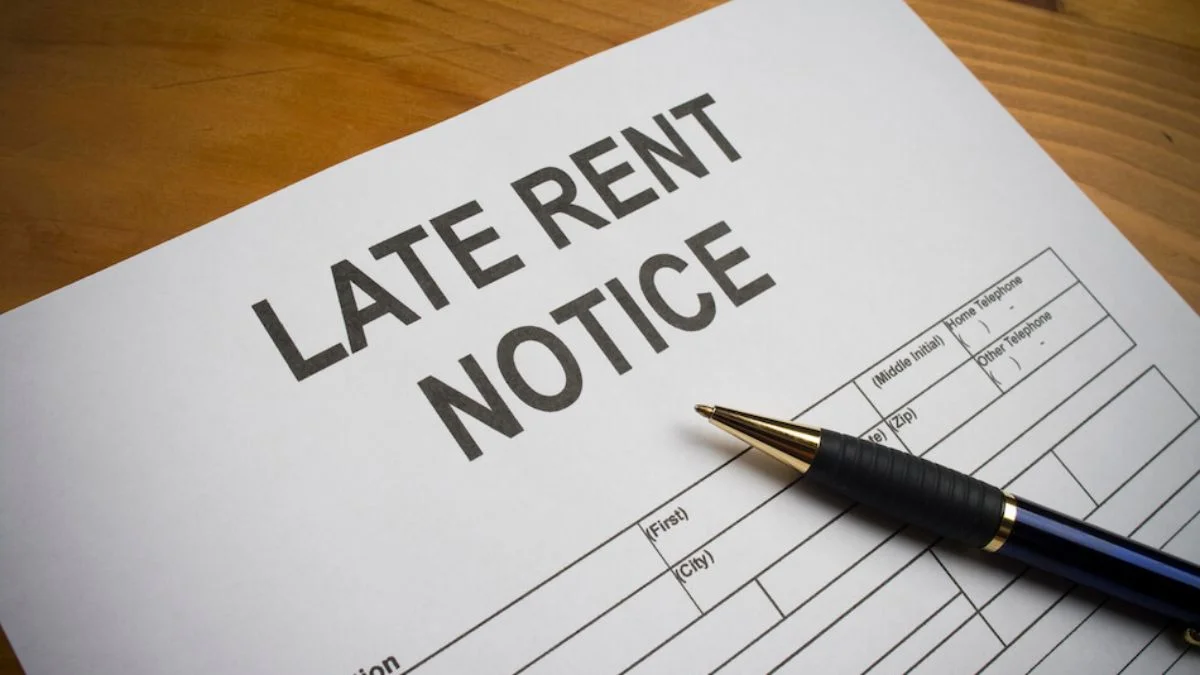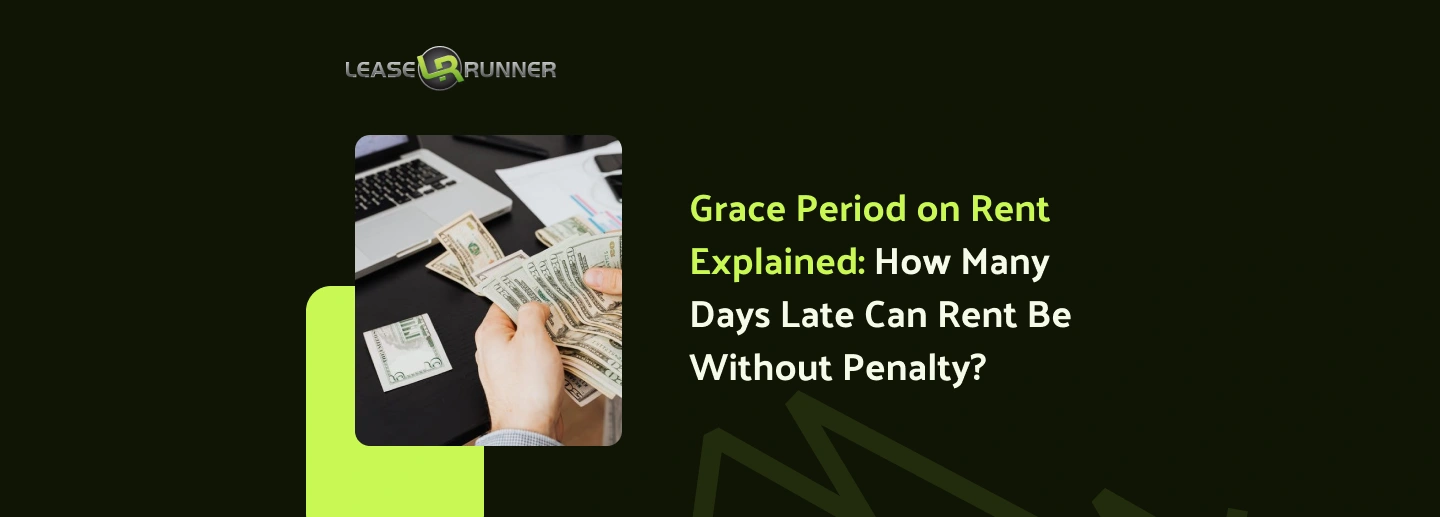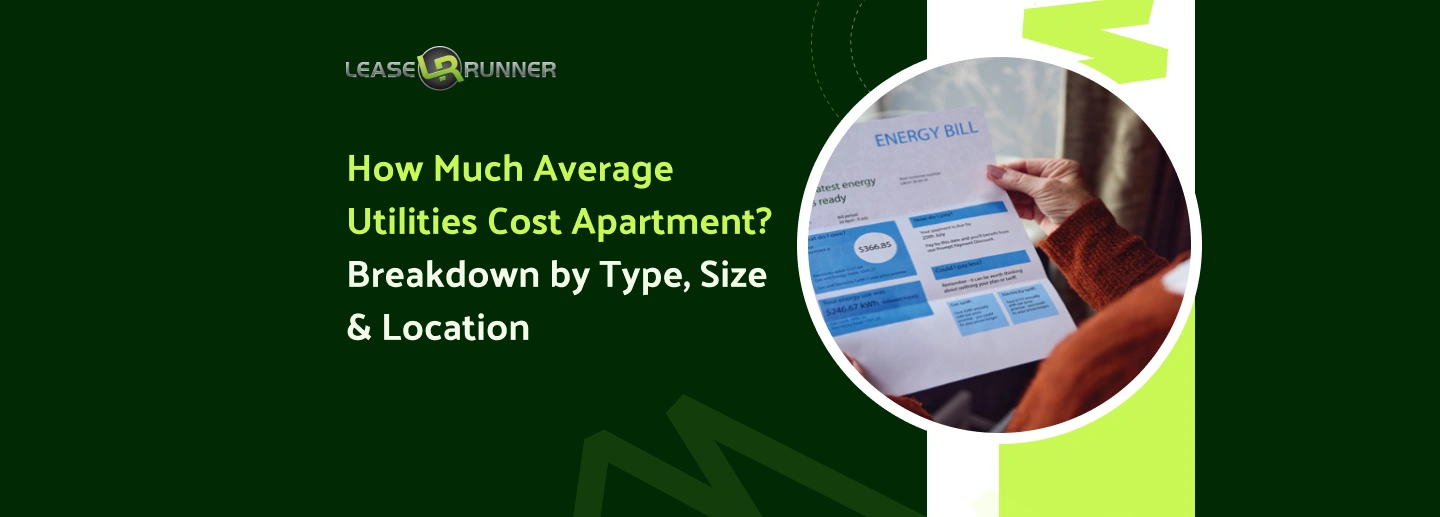Paying rent on time is one of the most important parts of the landlord-tenant relationship. Yet, life is not always predictable. Emergencies, banking delays, or unexpected bills can cause tenants to miss the due date. That is why many leases include a grace period on rent. This short extension gives tenants extra days to pay without immediate penalties.
In this guide, we’ll explain what a rental grace period is, how many days late rent can be without a penalty, and what rules apply in different U.S. states.
What Is Grace Period on Rent?

A grace period on rent is a specific time frame after the official rent due date during which tenants can pay rent without being charged a late fee. This short buffer period is designed to provide flexibility when unexpected delays happen—such as weekends, bank processing times, or holidays.
Grace periods are meant to give tenants breathing room. In most rental agreements, the duration is typically 3 to 5 days, though some leases may allow a longer or shorter time frame depending on the terms agreed upon.
For example, if your rent is due on the 1st of the month, a 5-day grace period means you have until the end of the 6th to pay without a penalty. This doesn't mean you should regularly pay late; it's a safety net, not a habit.
Not every lease includes a grace period, and laws vary by state. In some states, local laws require landlords to provide a minimum grace period, while in others, it depends entirely on the lease terms. Tenants should carefully review their rental contracts and be aware of applicable local laws to understand their rights and obligations.
Once the grace period ends, landlords are legally allowed to apply late fees, charge penalties, or take actions based on the lease terms. These consequences vary depending on state regulations, but they can add up quickly and affect a tenant’s payment record.
How Grace Period Works?
When a lease agreement includes a grace period, rent is not technically considered late until that period ends. The counting usually begins on the day immediately following the due date and continues for the number of days specified in the lease. For example, if rent is due on the 1st and the lease includes a five-day grace grace period, the tenant has until the 6th to pay. Starting from the 7th, the landlord may legally treat the payment as late and apply the agreed fees.
The length of the grace period is determined by the landlord or property management company and must be written into the lease. In some jurisdictions, housing laws require a minimum grace period, so even if the lease is silent or stricter, the local law will prevail.
Because the exact deadline depends on how the days are counted, tenants need to pay attention to the wording in their lease. Some agreements count calendar days, which include weekends and holidays, while others only recognize business days. This small difference can shift the final payment date and cause confusion if overlooked.
The method of payment also ties directly into whether a tenant meets the deadline. Online transfers are usually judged by the time the payment posts in the system, while checks or money orders only count once they are physically received. That means sending a check at the last minute can still result in a late fee if postal delays push delivery past the cutoff date.
Example: Imagine rent is due on September 1, and the lease allows a three-day grace period counted as business days. If September 1 falls on a Friday, the weekend does not count toward the grace period. In this case, the tenant would have until Wednesday, September 6, to make the payment without penalty. An online transfer completed late in the evening on the 6th would still be considered on time, while a check mailed on September 5 but delivered on the 7th would be treated as late and subject to fees.
Grace periods may sound simple, but in reality, the way they work often depends on the fine print in your lease. For example, a landlord may:
- Limit the grace period only to tenants who pay online.
- Cancel the grace period if a tenant has been late multiple times.
- Require advance notice if the tenant intends to use the grace period.
- Apply grace days only when the due date falls on a weekend or holiday.
On top of that, state and local housing laws can override lease terms. In some states such as Massachusetts or Connecticut , landlords must provide a minimum number of grace days by law. In others, they may have more flexibility to restrict or remove the grace period. Because of this, tenants should always double-check both their lease and local regulations to avoid surprises.
How Many Days Late Can Rent Be Without Penalty?

Generally, most rent payment grace periods range from 3 to 5 days. During this time, tenants can still make their rent payment without being charged a late fee. However, the exact number of days can vary depending on several factors:
- State laws – Some states require a mandatory grace period (often 3 to 5 days), while others leave it up to the lease.
- The lease agreement – Your contract usually decides the exact due date and whether a grace period exists.
- Landlord policies – In states without a legal requirement, landlords set their own rules, as long as they comply with local housing regulations.
So, when is rent considered late? Rent is usually considered late the day after the grace period ends. For example, if rent is due on the 1st and the lease includes a 5-day grace period on rent, then payment made on the 6th would be late and subject to fees.
If the lease does not provide a grace period and the state doesn’t mandate one, rent is considered late immediately after the due date passes. That means if your rent is due on the 1st, paying on the 2nd could already trigger a past due rent notice.
What happens if tenants pay after the grace period?
If you pay rent after the grace period, the first and most immediate consequence is usually a late fee. In most cases, this simply means the landlord will charge a late fee, as long as the amount is reasonable and clearly stated in the lease agreement.
However, if the delay continues and the rent remains unpaid, further consequences may follow:
- Past Due Notices: If the tenant still hasn’t paid after the grace period plus late fees, the landlords will send a written notice (often called a “pay or quit” notice). This notice informs you that rent is overdue and gives you a set number of days, commonly 3 to 7, depending on state law to pay in full before further action is taken.
- Eviction Process: If rent remains unpaid, the landlord can begin the eviction process. This is a serious legal action that can damage your credit and make it difficult to find housing in the future.
Grace Period Rules by State (US Overview)
Grace period laws vary widely across the United States. Some states have specific statutes, while others leave it up to the lease agreement. It's always best to check your local and state laws.
Legal Notes for Landlords about Grace Period on Rent

Landlords have a number of legal responsibilities when it comes to rent payments and grace periods. Adhering to these rules not only ensures a smooth operation but also protects you from potential legal disputes. Many property owners also turn to platforms like rent collection online to make the process easier and more reliable.
Complying with State and Local Rent Laws
Landlords must first understand that rent laws vary by state and sometimes even by city. For example, Colorado law requires a 7-day grace period on rent before late fees can be charged, while Florida law does not mandate any grace period at all—leaving it entirely to the lease terms. Failing to comply with these rules may make late fees unenforceable and can even expose landlords to legal disputes.
Relying on the Lease Agreement as the Legal Basis
When no state law requires a grace period on rent, the lease agreement becomes the main source of authority. Landlords should clearly state:
- The rent due date
- Whether a grace period applies
- The length of the grace period on rent
- The specific amount of the late fee and when it will be applied (e.g., "A late fee of $50 will be charged on the 6th day of the month if rent has not been paid").
This prevents misunderstandings and gives landlords a solid legal foundation if they ever need to enforce payment or file a past due rent notice. Courts typically uphold lease provisions as long as they don’t violate state law.
Managing Tenants with Consistent Late Payments
Chronic late payments can disrupt a landlord’s cash flow. To address this, landlords may:
- Enforce late fees consistently, as allowed by law.
- Keep written records of every late payment.
- Consider lease renewal conditions or stricter payment clauses.
- Explore mediation before moving to eviction, as courts often look for good faith efforts.
Consistency is key. Selectively enforcing late fees against some tenants but not others could be seen as discriminatory.
Handling Rent Payments Due on Weekends or Holidays
What happens if the rent due date falls on a Saturday, Sunday, or a public holiday? Most jurisdictions and standard lease agreements will consider the payment timely if it is received on the next business day. It is a best practice to state this clearly in the lease to avoid any confusion. This legal note prevents tenants from being penalized for circumstances beyond their control, such as a bank being closed on a holiday.
Legal Notes for Tenants about Grace Period on Rent

Understanding your rights and responsibilities as a tenant is key to a positive rental experience.
Understanding What to Do Before You Pay Late
If you know you cannot pay on time, act early. Review your lease to confirm if a rent payment grace period exists. Then, contact your landlord before the rent is due. Early communication often prevents fees and shows responsibility. Some landlords are more flexible when tenants are transparent.
Knowing Your Rights After the Grace Period Ends
Even if you miss the rent payment grace period, your landlord cannot immediately evict you. Landlords must follow a strict legal process. This process typically begins with a written "Notice to Pay Rent or Quit" or a similar legal notice. The notice gives you a specific number of days to pay the past-due rent or move out.
So, understanding your rights here is critical, especially in states with protections on rent increases.
Facing the Consequences of Non-Payment
If you miss the grace period without paying rent, several outcomes may follow:
- A late fee will be charged, as defined in your lease or state law.
- You may receive a notice to pay or quit, giving you a short window (often 3–7 days) to pay before eviction proceedings begin.
- Repeated late payments can hurt your rental history, making it harder to secure future housing.
Understanding these risks helps tenants make informed decisions. If payment truly isn’t possible, exploring alternatives like repayment plans or rental assistance is essential before the problem escalates.
What alternatives does Tenant have if they can’t pay rent on time?

If you're a tenant facing financial hardship and can't pay your rent on time, don't panic. You have several options to explore before facing the consequences of a missed payment.
Negotiating a Repayment Plan
One of the most practical solutions is to ask the landlord for a repayment plan. This allows tenants to split overdue rent into smaller installments over time. For example, if you owe one month’s rent, your landlord may agree to add an extra portion to the next three months instead of demanding full payment at once. Many landlords prefer repayment to eviction, since keeping a reliable tenant is often less costly.
Communicating Early and Explaining Clearly
If you know you cannot pay rent on time, tell your landlord before the grace period ends. Explain the reason for the delay, provide a realistic payment timeline, and back it up with documentation if possible. Open communication demonstrates accountability and increases the chance of flexibility.
Accessing Government or Rental Assistance Programs
Post-COVID, several federal, state, and local programs continue to provide rental aid. For example, state housing agencies in Colorado and Connecticut have extended support for struggling tenants, sometimes paired with longer rental grace periods. Tenants can also check nonprofit organizations, church-based aid groups, or local housing authorities for emergency funds.
Avoiding Rent in Advance Clauses
Some landlords include “rent in advance” clauses that demand multiple months of rent upfront. While legal in some states, these clauses can place heavy financial pressure on tenants. It’s important to note that rent in advance is not refundable, even if you move out early. This is different from a security deposit, which is generally refundable if you meet the terms of your lease and leave the property in good condition. If you’re already struggling financially, it’s wise to avoid or negotiate these rent-in-advance terms before signing a lease.
Trends and Recent Changes about Grace Period on Rent (Post-COVID)
During the COVID-19 pandemic, temporary moratoriums and rent assistance programs reshaped how grace periods worked:
- Extended Grace Periods: In response to economic hardship, several states, including Colorado and Connecticut, temporarily extended the grace period on rent during the pandemic. While many of these specific emergency measures have ended, they have highlighted the need for more flexible grace period laws.
- Caps on "Junk Fees": There is a growing trend to limit "junk fees," including late fees. States and cities are increasingly setting a cap or a reasonable percentage limit on late fees to prevent landlords from charging excessive amounts.
- Federal Recommendations: The Biden administration has issued a Blueprint for a Renter's Bill of Rights in 2023. While not a law, it encourages states and localities to adopt measures that protect tenants, including ensuring clear notice of fees and reasonable grace periods.
- Forward-looking: The recent trends suggest a future where grace period on rent may become more standardized and regulated across the country. The push for greater tenant protection and limits on fees points toward a more balanced legal framework for both tenants and landlords.
Conclusion
The grace period on rent is a vital concept for both tenants and landlords. Knowing how many days late can rent be without penalty helps prevent conflict and ensures compliance with the law. Whether it’s the grace periods in Florida or the Colorado rent grace period, always check your lease and state regulations.
If you’re a landlord, setting clear policies on rent payment grace periods avoids confusion. If you’re a tenant, understanding when rent is considered late keeps your rental record strong.







